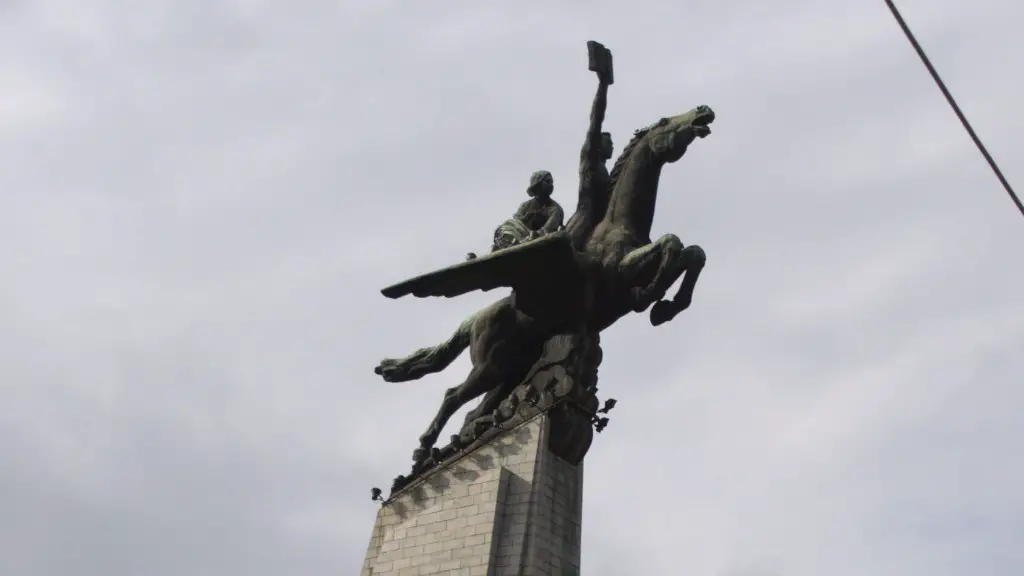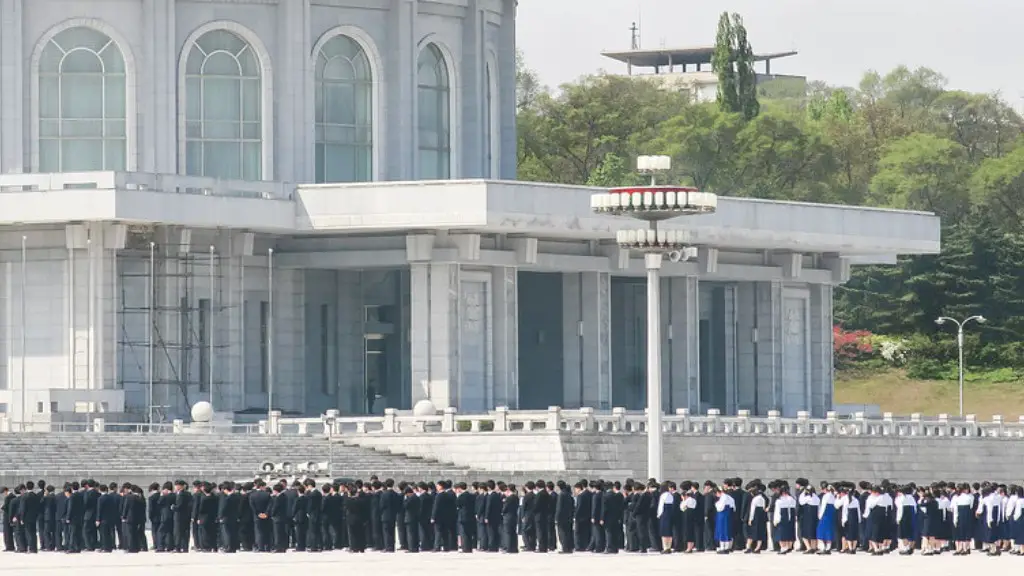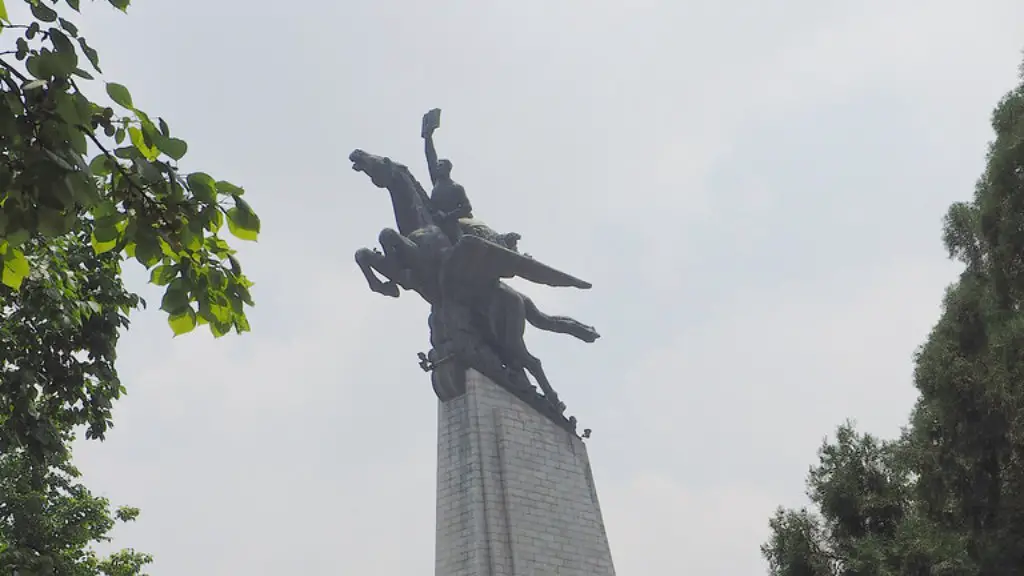I.Understanding North Korea’s Reclusiveness
North Korea has long been a reclusive and isolated nation, remaining largely off-limits to western travelers and media. Many are curious about the Hermit Kingdom and its current affairs, though experts say gaining any real insight into North Korea is a challenge. There are a handful of reasons for the nation’s reclusiveness, beginning with its ongoing political and economic troubles. North Korea is currently led by Kim Jong Un, whose grandfather, Kim Il Sung, created the infamous autocratic government in the 1940s. Under Kim Jong Un, North Korea has continued its pursuit of nuclear weapons and its antagonizing behavior towards South Korea, Japan, and even the United States, which it blames for the poverty experienced by its citizens.
Political turmoil aside, North Korea has also been plagued by an economic downturn, creating an even deeper level of reclusiveness. In the wake of the Cold War and since the death of its founder, the nation has struggled to provide basic services to its citizens. With little access to electricity in many regions, limited internet access, and a reliance on black market trade, North Korea is a largely impoverished nation that few outsiders visit or are even aware of.
II.The Struggles of People Living in North Korea
The dire conditions inside North Korea often remain unknown to those living outside of the East Asian nation. It is estimated that 40% of North Korean citizens live in poverty, and due to food and fuel shortages, infant mortality rates have risen over the past decade. Many North Koreans are unable to access running water or basic medical care, and there is rampant famine and malnutrition in some regions, placing many of its citizens in an especially vulnerable situation.
The Kim regime tightly controls the information that North Koreans receive, and surveillance and censorship of media outlets, including television and internet, are common. As a result, many news stories about North Korea, both positive and negative, are spread by citizen reporters who have managed to smuggle cameras and communications devices into the country. These reporters bravely share much-needed news about the current happenings inside North Korea so that the world can understand just how dire the situation has become.
III.What It’s Like to Escape North Korea?
The task of actually leaving North Korea is a daunting and risky endeavor, often requiring assistance from smugglers, who charge large fees for their services. Those who do manage to escape must cross the long, treacherous border along the DMZ, as well as secure documentation allowing them to safely cross into China. Once in China, North Koreans have the opportunity to apply for refugee status with the United Nations, and sometimes, they are allowed to enter South Korea.
Unfortunately, those who do escape to China often live in poverty and experience discrimination, as they are not officially recognized as refugees and are, instead, labeled as economic migrants. This means they are not given access to the same resources and support services as those in other refugee situations, something that US Secretary of State Rex Tillerson hopes to help change in the near future.
IV.Impacts of North Korea’s Escape Policies
The inability to easily escape North Korea has had a huge impact on the nation’s population, leading to an increase in refugees, who are often sent back to North Korea upon their return. According to the UN, hundreds of thousands of North Koreans are currently living in China illegally, and due to the lack of legal protection, many suffer abuse and exploitation at the hands of those who have made possible for them to cross the border.
As for those who manage to make it out of North Korea and seek asylum in other countries, the process is often slow and cumbersome due to a lengthy document-gathering process and the obstacles faced by many North Koreans, such as a limited financial capacity, language barriers, and a lack of familiarity with foreign cultures and customs.
V.The Need for Greater Protections
While the governments of South Korea, China, and the United States have slowly increased their restrictions on North Korean refugees and those attempting to escape their oppressive society, many advocates and experts believe a more comprehensive system of protection is desperately needed. Without greater protections in place, thousands more North Koreans will risk their lives in pursuit of freedom and stability outside of their country’s oppressive borders.
One possible solution is to establish a global network of resettlement centers, funded by the international community, that can provide safe havens and humanitarian assistance to refugees from North Korea. In addition, the international community could develop a system of resettlement programs that would integrate North Korean refugees with the countries in which they eventually seek asylum. This would provide North Koreans with the resources and skills necessary to not just survive, but to thrive in their new environments.
VI.The Pressure for Human Rights Reform
Recent reports have revealed that the North Korean regime continues to misuse its citizens and its resources, with hundreds of thousands of North Koreans in political prisons and a majority of its citizens living in poverty. This situation has provoked global outrage and calls for greater oversight and reform. As a result, the international community is increasing its pressure on the North Korean government to end its authoritarian rule and its mistreatment of its citizens, and to work to reduce rates of poverty and human trafficking in the region.
The US government has also began to impose more sanctions on the country as well as to work with South Korea and Japan to help strengthen its security. The US also offers various aid programs to help North Korean refugees in their own countries, as well as to those who have escaped and resettled in countries such as the US, Canada, and Europe.
VII.Organizations Working to Improve the Lives of North Koreans
There are a number of organizations both inside and outside North Korea working to put an end to human rights abuses and to improve the lives of its citizens. These organizations range from small grassroots movements to large international non-governmental organizations, including ones that are dedicated to helping North Korean refugees resettle in safer locations around the world.
One of the most effective ways of assisting North Korean citizens is to increase access to information about life outside of their country. Organizations such as the Liberty in North Korea have been helping to bring much-needed news to citizens of North Korea, sharing information on life outside of the country and working to help those who wish to escape and seek asylum.
VIII.Economic Solutions to Escape North Korea
Despite the risks, economic solutions may be one of the best ways to break away from the grip of North Korea. One example is the use of economic incentives to encourage political liberalization, such as the opening of development zones in the country to attract foreign investment. These zones would allow North Koreans to gain exposure to foreign markets and to access resources that would provide economic and social development in the country. This would provide North Korean citizens with a safety net of sorts that would allow them to break away from the oppressive rule of the Kim regime.
IX.Humanitarian Aid
Increasing humanitarian aid is also critical for those inside North Korea, as poverty, malnutrition, and other dire conditions continue to affect many of its citizens. Despite its importance, the provision of aid is difficult due to the nation’s strict regulations and lack of transparency, meaning that only those approved by the government are able to receive aid.
Non-governmental organizations that operate inside the country have had varying degrees of success in providing such aid, but many face challenges due to the fact that much of the resources, such as food and medical supplies, are diverted by the government or stolen by smugglers. As a result, it is important for the international community to strictly regulate the distribution of aid and to ensure that it reaches the intended recipients.
X.The Need for Change
Though it may seem impossible to escape North Korea’s grip, there is much that can be done to help those inside the country by improving the deteriorated and oppressive conditions surrounding them. Whether it’s providing economic solutions, offering greater protections, or providing more comprehensive aid, the international community must look for tangible ways to improve the lives of North Koreans, so that one day they can freely and safely escape the oppressive and reclusive country.


